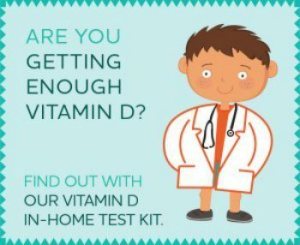The Right Melatonin Dosage
It's Not What You Think
The right Melatonin Dosage is different for different people in different situation depending upon who you are and what benefits you are intending to get from melatonin dosing. Interestingly, there have been studies using melatonin doses that are very small to a melatonin dosage as much as Three Thousand Times larger than the smallest dose- with VERY different outcomes, but all with extraordinarily few problems or Melatonin Side Effects.
When to Take Melatonin
Because melatonin is a hormone that is naturally produced by the body at night in order to help induce sleep, it MUST, without exception, be taken at night about 1/2 hour before sleep. Melatonin can make you SLEEPY, that's what it does. This is not a 'Side Effect of Melatonin' as some people say, it is an EFFECT, so please be prepared for it to put you to sleep and only take it before bedtime when you can get a full 8 hours sleep.
Melatonin Dosage for Insomnia
The right melatonin dose depends upon what you are using it for, but since melatonin is most often used as help for insomnia, then we'll start with melatonin dosing that have been shown to be of help for insomnia. Melatonin Benefits have been studied extensively as help for insomnia in just about all age groups from children to the elderly with few problems noted, but it seems to work differently at different dosages with larger doses not necessarily better for insomnia help.
Dosage for Adults
Melatonin dosing doesn't appear to be different for adults or the elderly. Dosages of Melatonin for Sleep have been from 0.1 to 20 mg that have effectively restored sleep pattern problems. One study that found dosages of 0.1 mg, that's just 1/10 of one milligram, to have significant improvements in sleep problems compared melatonin blood levels against a group of healthy people WITHOUT sleep problems. They found that such a tiny dose was not only effective for sleep, but actually increased melatonin blood levels to the same range as the healthy people with no sleeping problems.(3)
In fact, when melatonin was first discovered by MIT scientists, the university patented dosages between 0.3 mg and 1 mg because they never imagined people would be taking dosages more than 3 times higher than the 'physiologic dose' of 0.3 mg. Ironically, it is BECAUSE MIT patented these tiny dosages that supplement companies make higher dosages. It's not that higher dosages are better for you, it's just that they would have to pay MIT a patent fee if they made their product in the range indicated in the patent!
Remember, melatonin is a hormone. When hormones are taken rather than made by the body, the body applies a feedback loop and often stops making these hormones itself in a reverse rebound effect. So, taking more than the smallest effective dose is often a very bad idea when it comes to hormones like melatonin
But higher melatonin dosing is not necessarily better, and may be even WORSE than the tiny dosage of 0.1 mg that was used. In a study of elderly people with sleep disorders, a dosage of 0.3 mg (equal to melatonin 300 mcg) improved sleep significantly, but meltonin dosing 10 times larger of a full 3 mg given was actually NOT as effective(1). In another study, a blind person with 'sleep entrainment' problems was unable to 'entrain' his sleep with 10 mg even though the rest of a group with the same problem was able to. They increased his dose to 20 mg without any improvement in sleep. But when they Decreased his melatonin dosage to 0.5 mg, his sleep significantly improved!(2)
Therefore, it seems that a small melatonin dosage in the range from 0.1 mg to 3 mg is usually just as effective, and sometimes more effective, than larger doses.
Even though there is virtually no reason to worry about Melatonin Overdose or Melatonin Addiction with higher doses, they may just simply not be needed
What about Massive Doses?
As I said, different melatonin dosages have different effects and melatonin has even been studied at SUPER high dosages of up to 300 mg a day for several months at a time (4), with doses of 75 mg given safely for as long as 3 years at a time. And at these dosages, while there were no cases of Melatonin Overdose, it has actually been used as, and is in the final stages of a clinical trial for, a female contraceptive! Since melatonin has been used for this purpose and may be quite effective, it's best that women trying to get pregnant or who are pregnant should not use melatonin until its known if it's safe to do so.
Melatonin for Children
There have been MANY different studies using Melatonin for Children with sleeping disorders, especially in children with autism. Dosages used have been in the range of 0.1 mg up to 6 mg with good results at improving their sleeping problems. Melatonin appears to be safe and effective even in children with severe disability, those who are taking psychotropic drugs and in those who have a history of seizures.
In fact, it has even been used in hospitals for critically ill infants and has been used in some children as a TREATMENT for seizures when nothing else was effective.(3)(5).
If you are considering taking Melatonin Supplements, then be sure to read about the Side Effects of Melatonin to make sure that you have all of the information you need. Keep reading to find out more about some of the other Melatonin Benefits that you probably have never heard about...
Research for Melatonin Dosage
(1)Melatonin Treatment for Age-Related Insomnia
(3)Melatonin for Insomnia in Children With Autism Spectrum Disorders
Already Answered Questions about Melatonin
Click below to see already answered questions about Melatonin?
Melatonin not working
I have fibromyalgia, chronic pain, diabetes and other things I take medication for. I have night when I just can't get tired enough to sleep. Last night …

Ask Your Question. It will be posted publicly. READ THE TIPS BEFORE POSTING
Tip #1: SEARCH THE SITE FIRST! USE THE SEARCH BOX IN THE TOP RIGHT OF EVERY PAGE. 99% of all questions have been answered already. I will just delete your question if it's been answered already.
Tip #2: INCLUDE YOUR EMAIL ADDRESS on the Confirmation Page. There is no other way for you to get the answer to your question!
Tip #3: Include details so that I can help you more effectively.. and don't forget to include an email address on the confirmation page
Tip #4: Include a DESCRIPTIVE TITLE that tells about your problem. Saying 'Help Me' or something similarly nondescriptive does not help me to know what the problem is. A title such as "My _______ Level is Not Coming Up" is much more helpful.
Tip #5: If you are on a mobile device, please recheck your spelling and grammar.
Tip #6: Use decent grammar and complete sentences. Most of you are adults who went through over a decade of some sort of compulsory education. Please at least make your questions understandable. If you are not a native English speaker, just do your best.
Tip #7: SEARCH THE SITE FIRST! USE THE SEARCH BOX IN THE TOP RIGHT OF EVERY PAGE. 99% of all questions have been answered already.
Back to Top of Melatonin Dosage
To Easy Immune System Health Home



